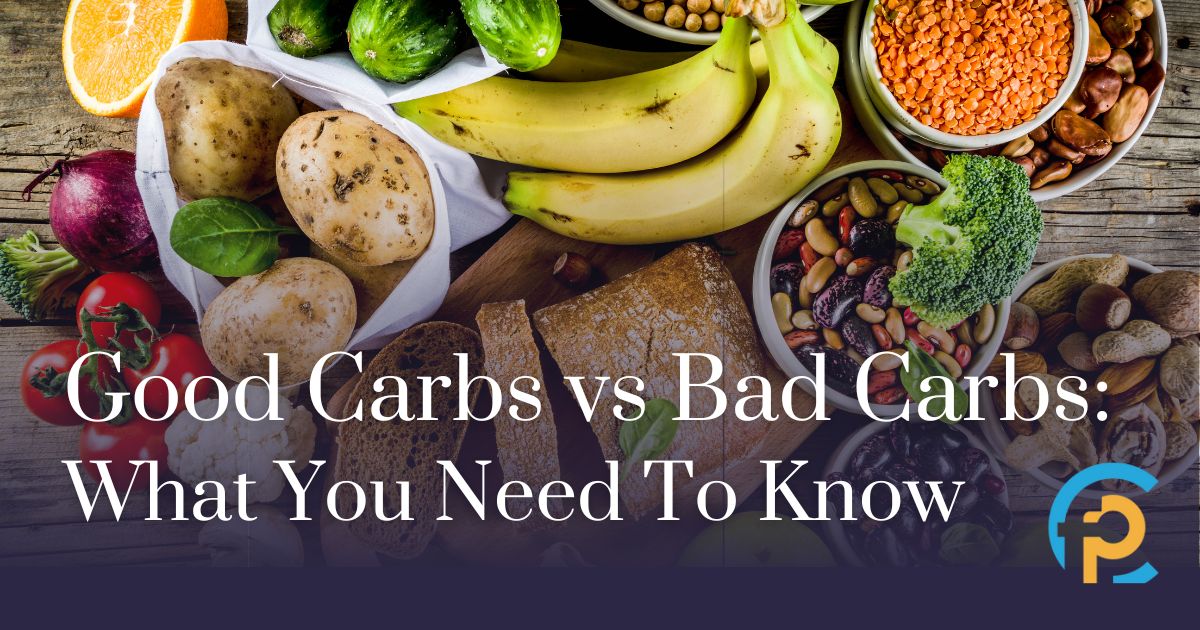

Good Carbs vs. Bad Carbs: What You Need to Know
“Carbs make you fat.”
“Carbs are essential for a healthy diet.”
So… which one is it?
If you’re confused about carbs, you're not alone. Between low-carb trends, keto culture, and mainstream diet advice, carbohydrates have become one of the most misunderstood parts of nutrition.
Let’s clear things up once and for all — and give you the tools to make better food decisions starting today.
What Are Carbohydrates?
Carbohydrates are one of the three main macronutrients (alongside protein and fat). When you eat carbs, your body breaks them down into glucose, which becomes your main source of energy — both for physical activity and brain function.
That’s right: your body and brain run on carbs.
But not all carbs are created equal. There are “good” carbs and “bad” carbs, and understanding the difference is key if your goals include fat loss, better energy, and long-term health.
Good Carbs vs. Bad Carbs
Good Carbs = Complex Carbs
These are nutrient-rich, high-fiber carbohydrates that take longer for your body to digest. This slower digestion leads to:
-
More stable blood sugar levels
-
Less hunger between meals
-
More consistent energy
-
Better support for fat loss and performance
Examples of Good (Complex) Carbs:
-
Oats
-
Sweet potatoes
-
Brown rice
-
Quinoa
-
Beans and legumes
-
Whole fruits
-
Vegetables
-
100% whole grain products
These foods are closer to their natural state and haven’t been stripped of their fiber or nutrients. That’s what makes them more filling and more beneficial for your metabolism.
Bad Carbs = Simple Carbs
These are low-fiber, low-nutrient carbohydrates that are often highly processed. Your body digests them very quickly, causing blood sugar spikes followed by crashes — which leads to:
-
Increased fat storage
-
Intense hunger soon after eating
-
Cravings for more sugar or carbs
-
Inconsistent energy levels
Examples of Bad (Simple) Carbs:
-
White bread
-
Cookies, cakes, and pastries
-
Sugary drinks (soda, sweetened tea)
-
Candy and processed snacks
-
Cereals made with refined grains
-
Foods made with enriched or bleached flour
So, Should Carbs Be Part of a Healthy Diet?
Absolutely — the right ones.
Good carbs (complex carbs) should be part of your daily intake, especially if you’re training regularly or trying to lose fat in a sustainable way. They provide the fuel your body needs without the blood sugar rollercoaster.
On the other hand, limiting your intake of added sugars and foods made with processed flours is a smart first step if your goal is to improve your energy, control hunger, and support fat loss.
The Bottom Line
Carbs aren’t the enemy — but the type of carbs you choose makes a big difference.
By focusing on whole, minimally processed foods that are high in fiber and nutrients, you’ll fuel your body more effectively and set yourself up for long-term success.
Need Help With Your Nutrition?
If you're in Columbus, Ohio and want help creating a personalized fat loss plan that actually fits your lifestyle, we’re here to help.
At Complete Fitness & Performance, we guide everyday people through sustainable training and nutrition strategies that work — without the confusion, crash diets, or extremes.









